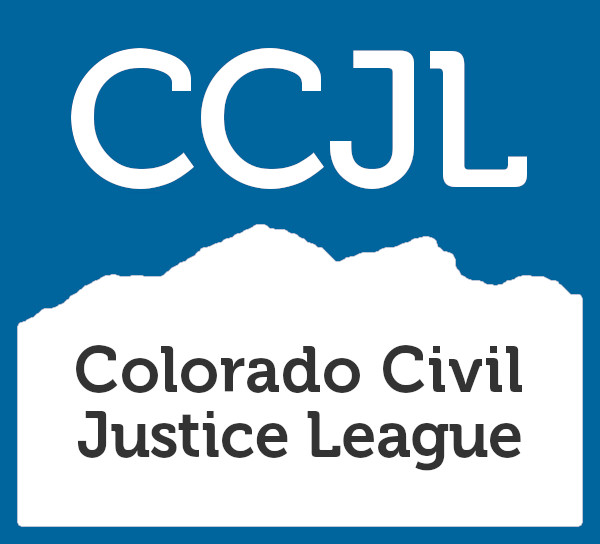Nearly one month into the 2019 legislative session, CCJL is keeping a close eye on bills that would create new lawsuits or impose new costs on Colorado businesses and the working families who rely on them.
Here’s a look at emerging bills and issues:
Criminal History of Job Applicants – House Bill 1025 (sponsored by Reps. Leslie Herod, D-Denver, and Jovan Melton, D-Aurora) prohibits employers from excluding people with a criminal history from applying for a job opening. It does not say that employers can’t consider someone’s criminal history, only that those applicants cannot be automatically excluded from applying. Commendably, the bills’ sponsors did not create a new “right to sue” (aka private right of action) as the enforcement mechanism, instead relying on a state agency to investigate possible violations. This is a procedure that others should emulate if they truly wish to address a perceived problem rather than create incentives for more litigation.
Homeless Right to Sue – HB 1096 (Rep. Melton) is the latest iteration of the so-called Right-to-Rest Act. The bill targets local government ordinances which regulate when and where people are allowed to sleep or camp on public sidewalks, in parks or on other public property. It also compares such ordinances to “cruel and unusual punishment” and allows for enforcement via lawsuit.
Add District Court Judges – Senate Bill 43 (Sen. Pete Lee, D-Colorado Springs, and Bob Gardner, R-Colorado Springs) adds 15 new district court judges in several judicial districts around the state. Given the increased demands on our state’s court system, CCJL supports this bill as a means of ensuring that legitimate claims can be handled without needless expense or delay.
Pay Disparites – SB 85 (Sen. Jessie Danielson, D-Wheat Ridge, and Brittany Pettersen, D-Lakewood) is advertised as “equal pay for equal work.” That’s a worthy goal, but the text of the bill, as introduced, sets too many “litigation traps” by treating every conceivable pay disparity as evidence of discrimination – and grounds for a lawsuit. For example, the bill doesn’t recognize that an employer with offices in Vail, Colorado Springs and Akron has a legitimate reason to pay a different salary to managers at those locations based on the vastly disparate costs-of-living in those communities. Another serious concern is that the bill completely eliminates the authority of the Department of Labor to investigate and enforce wage discrimination claims and turns that authority over to the civil litigation system with privately-hired attorneys acting on behalf of aggrieved employees. The bill also creates significant, additional burdens for businesses in terms of job posting requirements and record keeping.
Increase Lawsuit Damage Caps – SB 109 (Sen. Steve Fenberg, D-Boulder) increases the existing limitations on jury awards for non-economic damages (pain and suffering, emotional stress, loss of enjoyment of life) from the current $468,000 (or $936,000 in extreme cases) by adjusting for inflation. While inflation applies to the cost of goods and services, there’s no way to measure the value of intangibles like “pain and suffering.” There is no doubt that this legislation will increase costs to Colorado families and consumers who will see the value of their present insurance reduced and face the cost of paying higher premiums for additional coverage to keep the same protections today.
